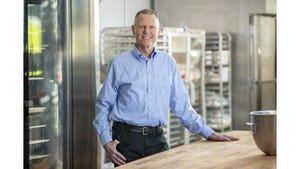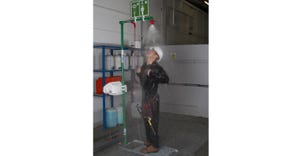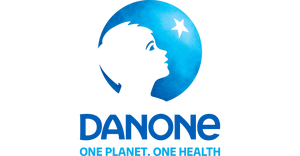How Much Food Companies are Spending to Combat COVID
Powder & Bulk Solids looks at how much some of North America’s top food companies are spending to reduce coronavirus hazards.

The food and beverage industry has contended with many challenges during the COVID-19 pandemic to keep their plants open and employees at work. There have been plant shutdowns due to outbreaks and restrictions, staffing issues, supply chain interruptions, and many more unexpected impacts from the crisis.
Over the course of the pandemic, some food companies have come under fire for allegedly failing to adequately protect their workers from COVID-19-related hazards. Last month, the chairman of the House Select Subcommittee on the Coronavirus Crisis, Rep. James E. Clyburn, sent a letter to OSHA, JBS USA, Smithfield Foods, and Tyson Foods as part of a new investigation into COVID outbreaks in US meatpacking plants. The US Department of Labor’s Occupational Safety and Health Administration (OSHA) is facing allegations that it failed to enforce worker safety laws at meatpacking plants during the pandemic.
As of March 4, 17,540 food processing workers and 57,542 meatpacking workers employed at facilities in the US have contracted COVID-19, according to data gathered by the Food & Environment Reporting Network. Of that number, 284 meatpacking workers and 48 food processing workers died from the virus.
While the industry faces flak, a review of financial documents, press releases and other materials from some of North America’s top food and beverage companies indicates that millions of dollars are being spent to keep food manufacturing workers safe. Powder & Bulk Solids highlights how a few of these firms are using their resources to combat the virus.
PepsiCo
Beverage and food manufacturer PepsiCo incurred about $800 million in COVID-19-related costs during 2020, the company’s chief financial officer, Hugh Johnston, said in prepared remarks released with its Q4 and full year 2020 results.
“We expect a portion of the COVID-19 related costs to continue as we are committed to maintaining the safety and support of our employees and customers,” Johnston said.
Tyson Foods
Springdale, AR-based Tyson spent $540 million on direct incremental COVID expenses during its fiscal year that ended on October 3, 2020, according to its year-end results, including $200 million in the fourth quarter alone.
“These direct incremental expenses primarily included team member costs associated with worker health and availability and production facility downtime, including direct costs for personal protection equipment, production facility sanitization, COVID-19 testing, donations, product downgrades, and rendered product, partially offset by CARES Act credits,” Tyson said in a November 2020 release announcing its FY 2020 figures.
Tyson’s chief executive officer and president, Dean Banks, said in a February 11 call with investors that the food company “incurred $120 million of direct incremental COVID-19 cost during the first quarter” of FY 2021.
Nestle
The Swiss food and beverage giant spent CHF 420 million, or about $463 million, on incremental COVID-19-related costs last year, according to its full year results released this month. Nestle used the funds on bonuses for frontline workers, employee safety measures, donations, “and other staff and customer allowances.” Idle plants and workers during lockdowns accounted for CHF 170 million (around $187 million) of those expenditures. Its COVID-related expenses dipped in the second half of 2020 as some governments relaxed restrictions on movement.
JBS USA/Pilgrim’s
Meat processor JBS USA and poultry firm Pilgrim’s have jointly invested over $200 million in health and safety measures for its workers, including PPE, physical barriers, UV germicidal air sanitation technology, and COVID-19 testing during the pandemic, according to a January 21 release. The companies have also spent more than $160 million to boost wages and offer bonuses and provided $50 million in support to communities.
Kraft Heinz
While Powder & Bulk Solids could not find the exact figure that Kraft Heinz has spent on pandemic-related expenses, an annual report filed by the company with the US Securities and Exchange Commission (SEC) shows how the company has used its funds to respond to the crisis.
Kraft “incurred additional COVID-19-related operating costs as we focused on meeting increased retail demand, adding additional sanitation measures, and providing personal protective equipment to our employees,” according to the document.
Smithfield Foods
Pork processor Smithfield Foods has committed $700 million to implement safety measures to protect its workers from COVID-19 infections during the pandemic, according to a February 1 company release.
Chief Admirative Officer Keira Lombardo wrote that the funds were used for on-site COVID-19 prescreening and testing facilities, air purification systems, physical barriers at workstations; PPE, facility modifications and expansions, sanitation stations, signage, and the hiring of new employees to ensure that staff adhere to safety protocols.
General Mills
About $100 million was dedicated to COVID-related costs during Q4 of General Mills’ FY 2020, which ended on May 31, 2020, chief financial officer Kofi Bruce said on an earnings call in July 2020.
In another call in mid-December on the company’s results for Q2 2021, which ended on Nov. 29, 2020, an analyst asked Bruce what the COVID-related costs have been so far this fiscal year. The executive responded, “I think, candidly, it is getting harder to separate COVID-related costs. So, we have not been doing so this year, in part, because COVID, it impacts, it permeates so many areas of our business and there probably is a level of visibility that is hard to get much more granular than we have been.”
Hormel Foods
SPAM maker Hormel revealed in an earnings report that it incurred more than $80 million in incremental supply chain costs related to the pandemic during the fiscal year that ended on Oct. 25, 2020.
The expenses were “primarily related to lower production volumes, employee bonuses and enhanced safety measures in its production facilities,” the document said. Hormel wrote that it believes the COVID-related costs are temporary and will decrease as the pandemic wanes.
During Q1 2021, $15 million was spent on direct incremental supply chain costs because of reduced volumes and safety enhancements in its plants, according to a February 18 company release announcing the quarter’s results.
“Employee safety remains a top priority as a company,” Jim Snee, chairman, president, and chief executive officer of Hormel, said in a statement. “We know that even with vaccines being distributed across the country, we must remain vigilant.”
Kellogg Company
Chief financial officer and senior vice president Amit Banati noted in Kellogg Co.’s Q4 2020 earnings call on February 11 that more than $60 million has been spent on “incremental direct COVID-related costs” during the pandemic.
Mondelez International
Confections and snacks firm Mondelez International spent $250 million on COVID-related expenses in 2020, Luca Zaramella, its chief financial officer, told investors on an earnings call in late January.
The company’s chairman and chief executive officer, Dirk Van De Put, explained what some of the expenses were and how the company weathered the costs: “We faced costed relating to lockdowns, supply chain disruptions, adaptations to our ways of working as well as the need for increased PPE, but we were able to offset the majority of these costs through savings across areas like overheads, trade spend, and non-working media.”
Zaramella said the company expects costs linked to the pandemic to decline over 2021.
The Bottom Line
Although there may be some validity to claims that certain food and beverage companies have not properly protected their workers from COVID exposure during the pandemic, it is evident that some of the largest players in the industry are committing substantial funds to improving the safety of their facilities.
Because the trajectory of the pandemic is uncertain, food and beverage companies will likely continue to bear these costs for some time in the future.
About the Author(s)
You May Also Like




